Gaza ceasefire talks threaten Netanyahu’s long run as political survivor
Over three decades, the Israeli PM has become known as the ‘magician’ for his ability to escape political dilemmas. The war in Gaza and hostage-release talks with Hamas are testing those skills like never before.
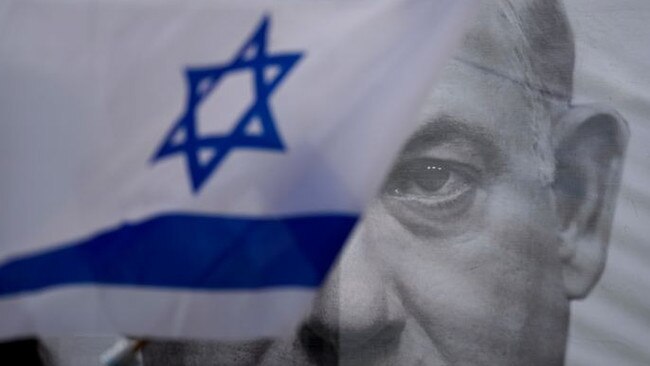
Over three decades in public life, Israeli Prime Minister Benjamin Netanyahu has become known as the “magician” for his ability to wriggle free of political dilemmas. The war in Gaza and hostage-release talks with Hamas are testing those skills like never before.
Hopes for a deal are fading after Netanyahu pulled the Israeli negotiating team from talks in Qatar earlier this week and Hamas rejected a new proposal for a compromise. The talks are expected to move to Cairo next week. Netanyahu faces divisions within his government and an Israeli public concerned about a war that is dragging on without achieving either of Israel’s initial two goals: the destruction of Hamas and the release of the hostages.
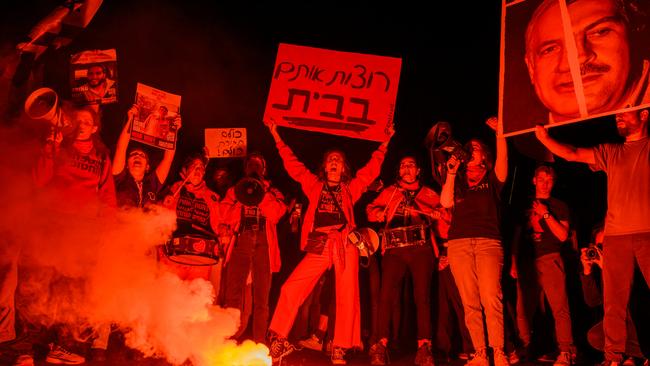
Families of the Israeli hostages are becoming increasingly strident in their criticism of the prime minister, this week calling on President Biden to push Netanyahu to accept an agreement. Netanyahu’s popularity has sunk, and a pre-war protest movement that filled Israel’s streets with anti-government demonstrators has begun to re-emerge to push for freeing the hostages and holding new elections.
Netanyahu also faces threats from within his ruling coalition to bring down his government if he accepts a deal that releases Palestinian prisoners convicted of killing Israelis, as Hamas demands. And he has faced strife within his war cabinet, with the two other members widely seen as waiting for a chance to oust him.
As a statesman, Netanyahu has defied the odds before, as he expanded Israel’s relations with Arab states, helped kill Washington’s nuclear deal with Iran and shifted his country away from acceptance of a Palestinian state. But the stakes for his own political survival and the future of his country have rarely been higher.
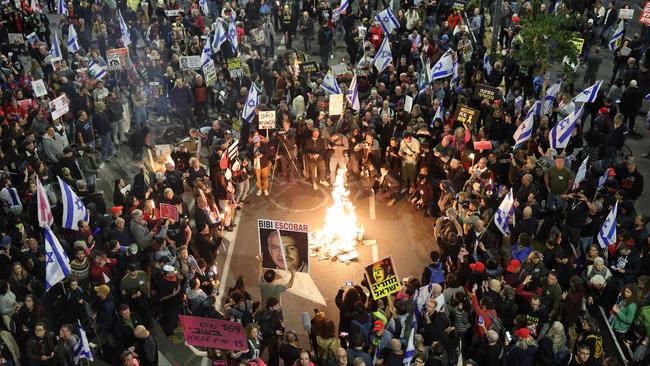
Israeli political analysts say that Netanyahu is facing a test like no other in his decadeslong political career, in which the pressure on him is building as the war drags on. Alon Pinkas, a former senior Israeli diplomat, said he didn’t think Netanyahu would survive in power.
“It’s like a perfect storm,” Pinkas said. “It’s the war. It’s his failure to achieve what he unwisely called ‘total victory.’” Israeli and American military and intelligence officials say that goal is increasingly out of reach, regardless of whether the war continues. Though Hamas has been battered by the Israeli offensive in Gaza, the group is likely to survive as both a social movement and an armed insurgency, Israeli military experts say.
“We know that there is a majority in the Israeli [war] cabinet led by Benny Gantz and Gadi Eisenkot and [Aryeh] Deri to reach a hostage deal, and the person who is always making it hard is Netanyahu,” said Noam Tibon, a retired Israeli general, referring to one of the cabinet’s main members, Gantz, and two of its observers.
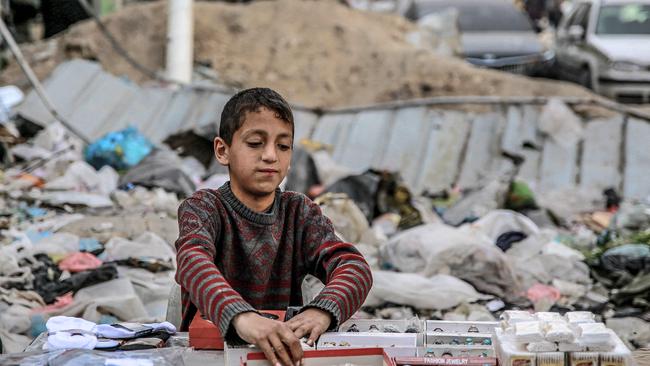
While officials close to Netanyahu say he wants a deal, he also needs one that will keep his government together and won’t alienate his conservative support base ahead of a possible election later this year. Israeli officials involved in the talks blame the current stalemate on Hamas for digging in during the negotiations.
People around Netanyahu also argue that U.S. pressure on Israel to wrap up the war and compromise with Hamas undermines Israel’s negotiating position.
“He’s trying to be a hardliner in the negotiations on the one hand, and trying to satisfy those who oppose him and his government on the other,” said Abraham Diskin, a professor emeritus at Jerusalem’s Hebrew University.
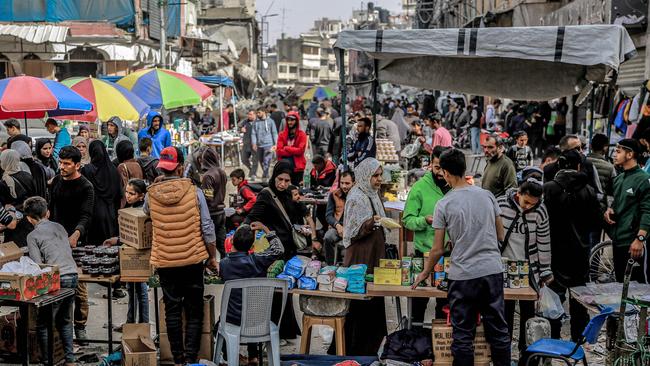
Within Israel, Netanyahu has also come under criticism from former negotiators and security officials for giving his negotiating team a limited mandate in a recent round of talks in Doha, Qatar. Officials close to Netanyahu reject the criticism. A senior Israeli official involved in the talks said the team has the power to negotiate in earnest.
A polarising figure in Israeli society, Netanyahu before the war faced vast protests against his plans to diminish the power of the Israeli judiciary, and he also faces a continuing corruption trial. He denies the charges.
Hamas’s deadly incursion on Oct. 7 introduced new political dangers for Netanyahu as some Israelis blamed him for failing to prevent the attacks, which Israel says killed 1,200 people, mostly civilians, and resulted in Hamas taking more than 200 hostages.
Israel’s military offensive in Gaza has killed more than 32,000 people, according to Palestinian health officials, whose figures don’t distinguish between soldiers and civilians.
Israel accepted a previous ceasefire deal with Hamas in November that paused the war for about a week and freed more than 100 hostages along with 240 Palestinian prisoners.
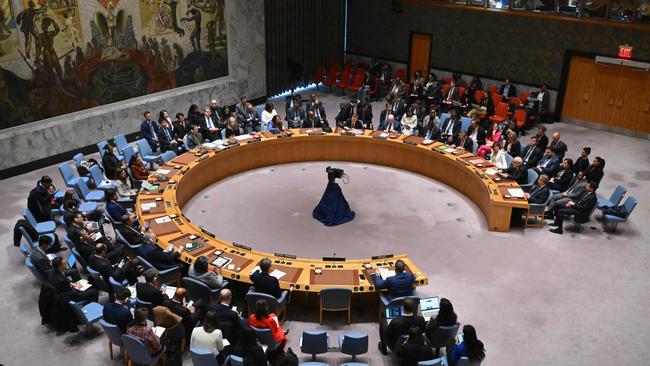
Brokered by the U.S., Qatar and Egypt, renewed negotiations toward another deal have dragged on for months, with discussions centring on an American-backed proposal to pause the fighting for about six weeks and free civilian hostages first.
“There is no indication whatsoever that he is willing to prioritise the hostages over his unachievable war goal of total victory,” said Gershon Baskin, an Israeli hostage negotiator who helped broker a previous prisoner exchange with Hamas.
The negotiations have been stalled for weeks over Hamas’s demands to release Palestinian prisoners serving life sentences in Israeli prisons back to Gaza or the West Bank, and Israel’s reluctance to remove a key checkpoint that would allow all Palestinians to return to northern Gaza during a ceasefire, including military-age men.
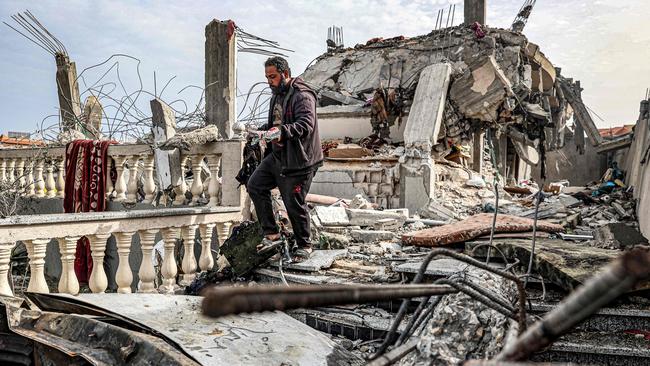
Hostages’ families have become increasingly frustrated with Israel’s inability to reach a deal, blocking major highways and shutting themselves in cages during protests in front of the Kirya military headquarters complex. They have also singled out Netanyahu for criticism, something they avoided doing in the initial months of the war.
“In our meeting with the prime minister today we demand to know when and how our sons will be returned,” said Orna Neutra, whose son, a soldier, is held captive in Gaza, during a protest in Tel Aviv on Thursday.
“We also demand to know that the teams involved in the negotiations have the tools and the leverages to bring them home,” Neutra added in reference to domestic criticism over Netanyahu limiting the negotiating team’s mandate.
U.S. State Department spokesman Matthew Miller on Wednesday rejected the notion that the talks were at an impasse.
“When you get down to the end — when you make progress, the issues that remain are often the hardest ones,” he told reporters in Washington. “You don’t usually solve the hardest issues first, you solve them last.”
The Wall Street Journal

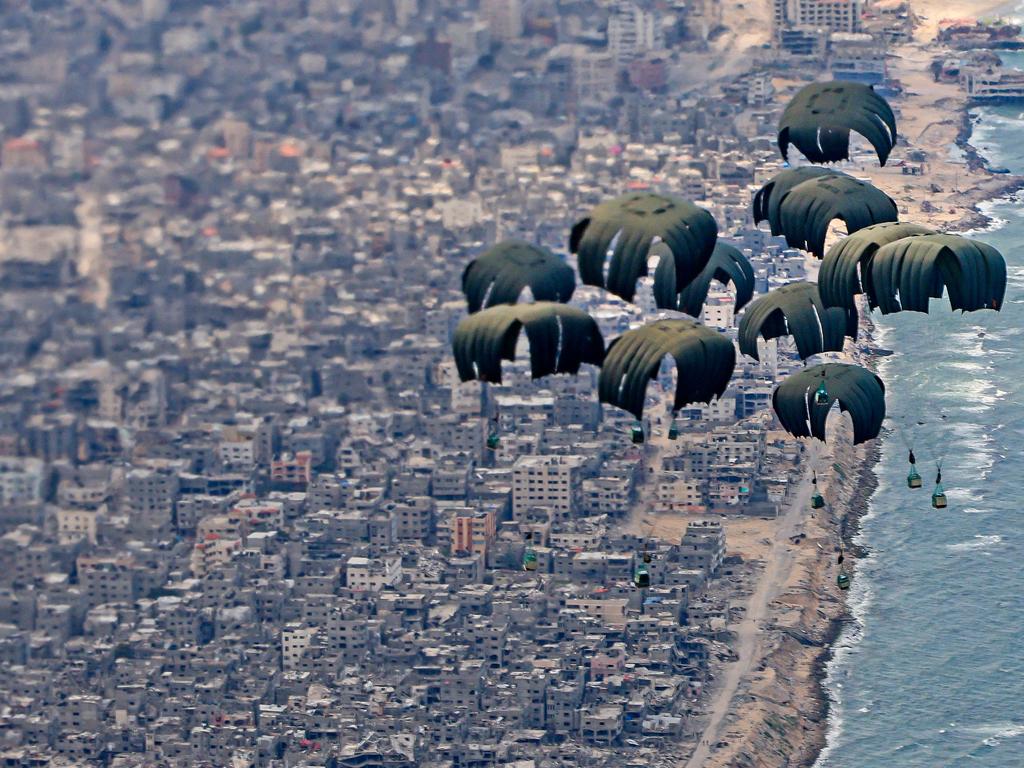
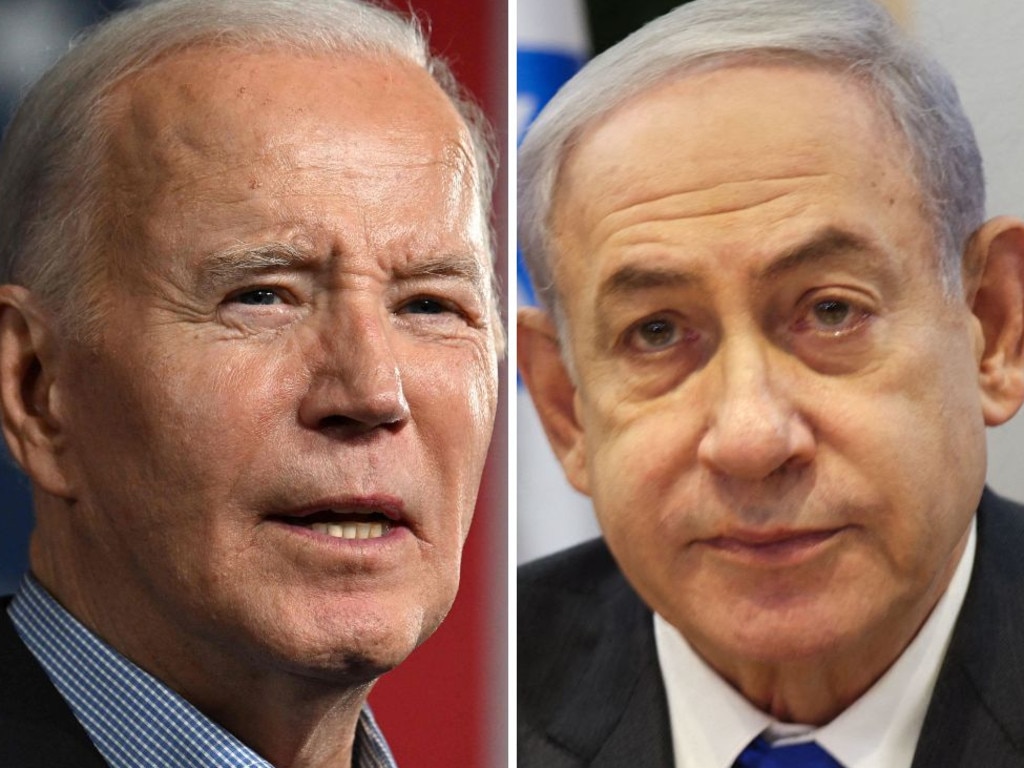


To join the conversation, please log in. Don't have an account? Register
Join the conversation, you are commenting as Logout